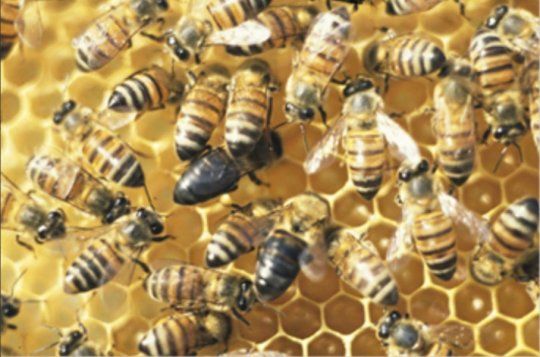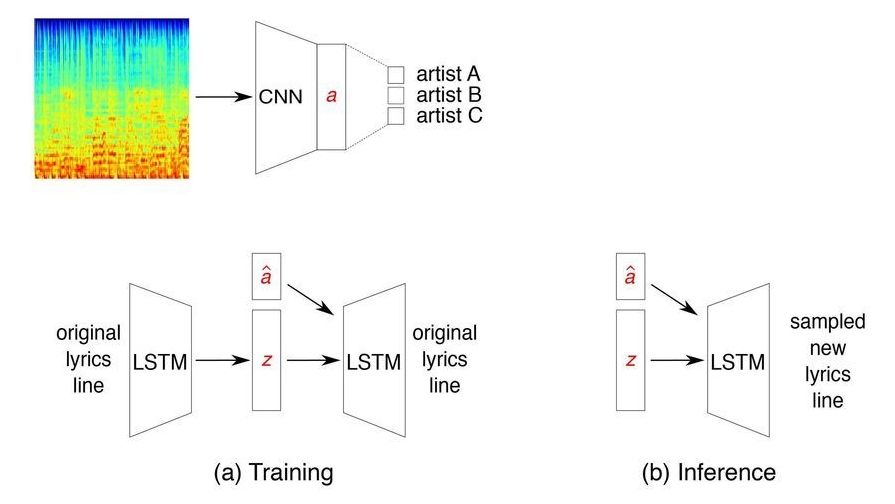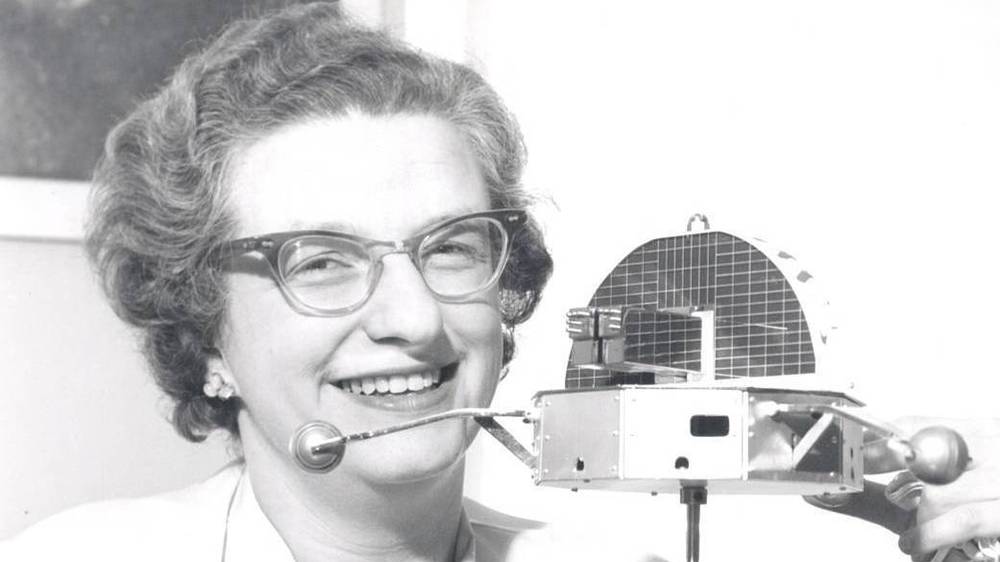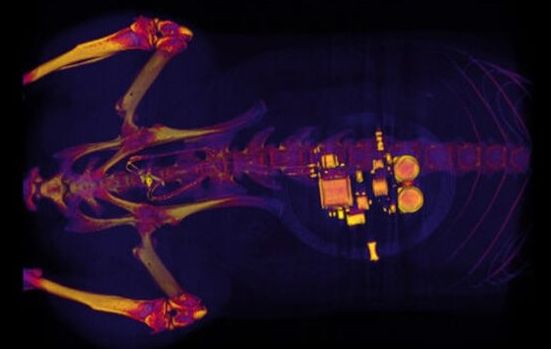Page 8200
Jan 9, 2019
A system to generate new song lyrics that match the style of specific artists
Posted by Saúl Morales Rodriguéz in categories: media & arts, robotics/AI
Researchers at the University of Waterloo, Canada, have recently developed a system for generating song lyrics that match the style of particular music artists. Their approach, outlined in a paper pre-published on arXiv, uses a variational autoencoder (VAE) with artist embeddings and a CNN classifier trained to predict artists from MEL spectrograms of their song clips.
“The motivation for this project came from my personal interest,” Olga Vechtomova, one of the researchers who carried out the study, told TechXplore. “Music is a passion of mine, and I was curious about whether a machine can generate lines that sound like the lyrics of my favourite music artists. While working on text generative models, my research group found that neural networks can generate some impressive lines of text. The natural next step for us was to explore whether a machine could learn the ‘essence’ of a specific music artist’s lyrical style, including choice of words, themes and sentence structure, to generate novel lyrics lines that sound like the artist in question.”
The system developed by Vechtomova and her colleagues is based on a neural network model called variational autoencoder (VAE), which can learn by reconstructing original lines of text. In their study, the researchers trained their model to generate any number of new, diverse and coherent lyric lines.
Continue reading “A system to generate new song lyrics that match the style of specific artists” »
Jan 9, 2019
Researchers create a wireless, battery-free, biodegradable blood flow sensor
Posted by Saúl Morales Rodriguéz in categories: biotech/medical, electronics
A new device developed by Stanford University researchers could make it easier for doctors to monitor the success of blood vessel surgery. The sensor, detailed in a paper published Jan. 8 in Nature Biomedical Engineering, monitors the flow of blood through an artery. It is biodegradable, battery-free and wireless, so it is compact and doesn’t need to be removed and it can warn a patient’s doctor if there is a blockage.
“Measurement of blood flow is critical in many medical specialties, so a wireless biodegradable sensor could impact multiple fields including vascular, transplant, reconstructive and cardiac surgery,” said Paige Fox, assistant professor of surgery and co-senior author of the paper. “As we attempt to care for patients throughout the Bay Area, Central Valley, California and beyond, this is a technology that will allow us to extend our care without requiring face-to-face visits or tests.”
Monitoring the success of surgery on blood vessels is challenging as the first sign of trouble often comes too late. By that time, the patient often needs additional surgery that carries risks similar to the original procedure. This new sensor could let doctors keep tabs on a healing vessel from afar, creating opportunities for earlier interventions.
Continue reading “Researchers create a wireless, battery-free, biodegradable blood flow sensor” »
Jan 9, 2019
Robots of the future: more R2D2 than C3PO
Posted by Saúl Morales Rodriguéz in categories: engineering, robotics/AI
Researchers from Australia’s national science agency, CSIRO, have offered a bold glimpse into what the robots of the future could look like. And it’s nothing like C3PO, or a T-800 Terminator.
In a paper just published in Nature Machine Intelligence, CSIRO’s Active Integrated Matter Future Science Platform (AIM FSP) says robots could soon be taking their engineering cues from evolution, creating truly startling and effective designs.
This concept, known as Multi-Level Evolution (MLE), argues that current robots struggle in unstructured, complex environments because they aren’t specialised enough, and should emulate the incredibly diverse adaptation animals have undergone to survive in their environment.
Jan 9, 2019
Will humanity survive this century? Sir Martin Rees predicts ‘a bumpy ride’ ahead
Posted by Derick Lee in categories: biotech/medical, governance, security
Humanity is under threat. At least according to Sir Martin Rees, one of Britain’s most esteemed astronomers.
These two kinds of technologies enable just a few people to have a hugely wide-ranging and maybe even global cascading effect. This leads to big problems of governance because you’d like to regulate the use of these things, but enforcing regulations worldwide is very, very difficult. Think how hopeless it is to enforce the drug laws globally or the tax laws globally. To actually ensure that no one misuses these new technologies is just as difficult. I worry that we are going to have to minimize this risk by actions which lead to a great tension between privacy, liberty and security.
Do you see ways that we can use and develop these technologies in a responsible way?
Jan 8, 2019
Nancy Grace Roman, ‘Mother Of Hubble’ Space Telescope, Has Died, At Age 93
Posted by Nicholi Avery in category: space
When Nancy Grace Roman was a child, her favorite object to draw was the moon.
Her mother used to take her on walks under the nighttime sky and show her constellations, or point out the colorful swirls of the aurora. Roman loved to look up at the stars and imagine.
Eventually, her passion for stargazing blossomed into a career as a renowned astronomer. Roman was one of the first female executives at NASA, where she served as the agency’s first chief of astronomy.
Continue reading “Nancy Grace Roman, ‘Mother Of Hubble’ Space Telescope, Has Died, At Age 93” »
Jan 8, 2019
The Doctors — A Way To Reverse Aging
Posted by Cathy Miller in categories: biotech/medical, life extension

Is an American syndicated talk show airing daily on television in the U.S., Canada, Mexico, Australia, Ireland, Sweden and Finland. It debuted on September 8, 2008. The hour-long daytime program is produced by Phil McGraw and his son Jay McGraw and is distributed domestically and globally by CBS Television Distribution. The series is a spin-off of Dr. Phil and is the first talk show to be a third generation talk show spin-off, as Dr. Phil itself spun off The Oprah Winfrey Show.
Rejuvenation is a medical discipline focused on the practical reversal of the aging process.
Jan 8, 2019
Your Brain Isn’t a Computer — It’s a Quantum Field
Posted by Shane Hinshaw in categories: computing, neuroscience, particle physics, quantum physics
While our choices and beliefs don’t often make sense or fit a pattern on a macro level, at a “quantum” level, they can be predicted with surprising accuracy.
The irrationality of how we think has long plagued psychology. When someone asks us how we are, we usually respond with “fine” or “good.” But if someone followed up about a specific event — “How did you feel about the big meeting with your boss today?” — suddenly, we refine our “good” or “fine” responses on a spectrum from awful to excellent.
In less than a few sentences, we can contradict ourselves: We’re “good” but feel awful about how the meeting went. How then could we be “good” overall? Bias, experience, knowledge, and context all consciously and unconsciously form a confluence that drives every decision we make and emotion we express. Human behavior is not easy to anticipate, and probability theory often fails in its predictions of it.
Continue reading “Your Brain Isn’t a Computer — It’s a Quantum Field” »
Jan 8, 2019
Tiny, implantable device uses light to treat bladder problems
Posted by James Christian Smith in category: biotech/medical
A team of neuroscientists and engineers has developed a tiny, implantable device that has potential to help people with bladder problems bypass the need for medication or electronic stimulators.
The team — from Washington University School of Medicine in St. Louis, the University of Illinois at Urbana-Champaign, and the Feinberg School of Medicine at Northwestern University in Chicago — created a soft, implantable device that can detect overactivity in the bladder and then use light from tiny, biointegrated LEDs to tamp down the urge to urinate.
The device works in laboratory rats and one day may help people who suffer incontinence or frequently feel the need to urinate.
Continue reading “Tiny, implantable device uses light to treat bladder problems” »
Jan 8, 2019
This Startup Wants to Launch Giant Glowing Ads Into the Night Sky
Posted by Shane Hinshaw in category: futurism
An array of cubesats will create brand-sponsored new constellations.
Should brands fill the night sky with corporate logos?

















